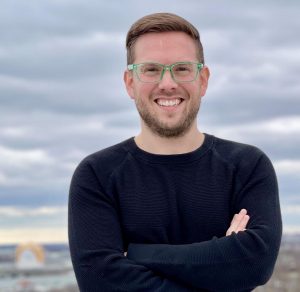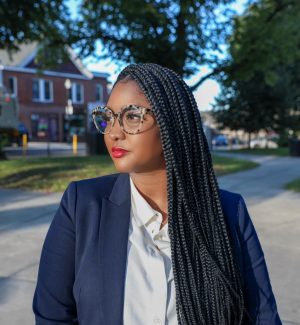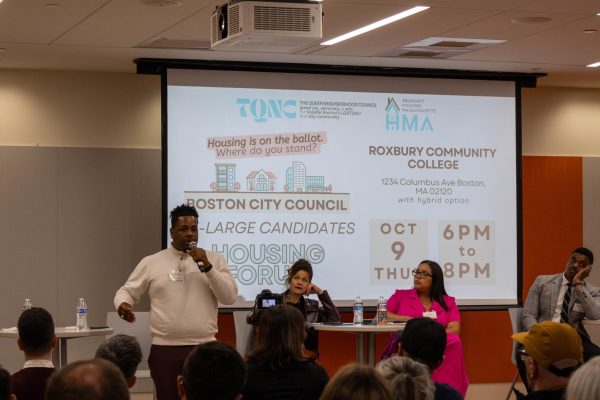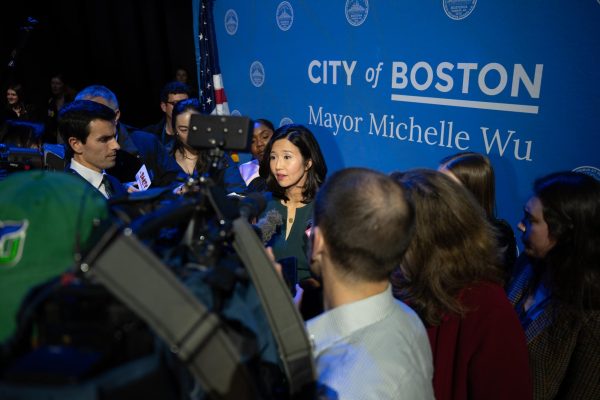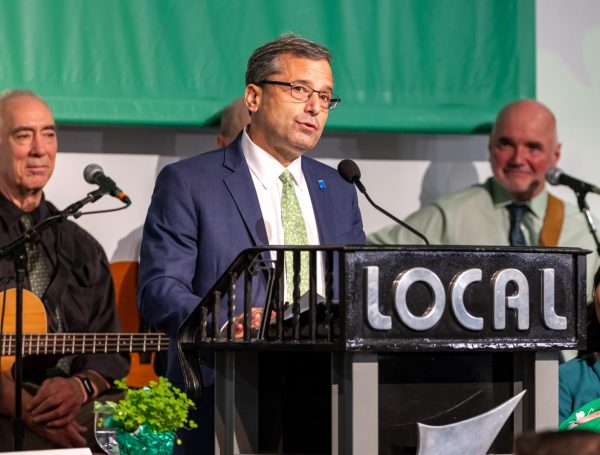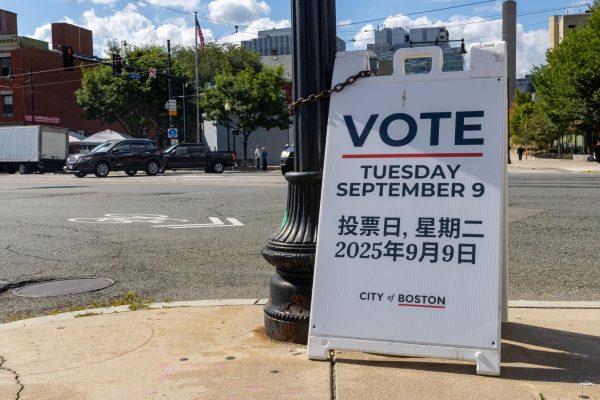City council race: Leonard Lee running for District 4
Leonard Lee, a Boston native with a background in public health and community activism, is running for Boston City Council to represent District 4, which includes Dorchester, Roslindale and Jamaica Plain.
Lee is running against at least 10 other candidates including Jacob Urena, Joel Richards, Deeqo Jibril, Nikkia Jean-Charles, Brian Worrell, William Dickerson, Josette Williams, Trevour Smith, Troy Smith and Trina Ruffin for the same seat on the city council. Andrea Campbell, who represents District 4 on the city council, is running for Boston mayor.
Lee previously held positions including the at-large appointee of the Boston Parks and Recreation Commission in Mayor Walsh’s administration and the Deputy Commissioner of Public Health for the state of Connecticut.
Lee said his campaign would focus on vaccine distribution equity and COVID-19 recovery, especially for Black and brown residents in the community. In 2020, Lee founded Masking the Community, a fundraiser that began on Facebook to provide free face masks to health care workers and essential workers.
“I feel masks should be free as the air we breathe so I started this initiative and to date have given over 170,000 masks,” Lee said.
The Scope spoke with Lee to discuss his campaign’s top issues and his plans to address them if elected. The following conversation has been edited for length and clarity.
What has been your experience living and working in Boston?
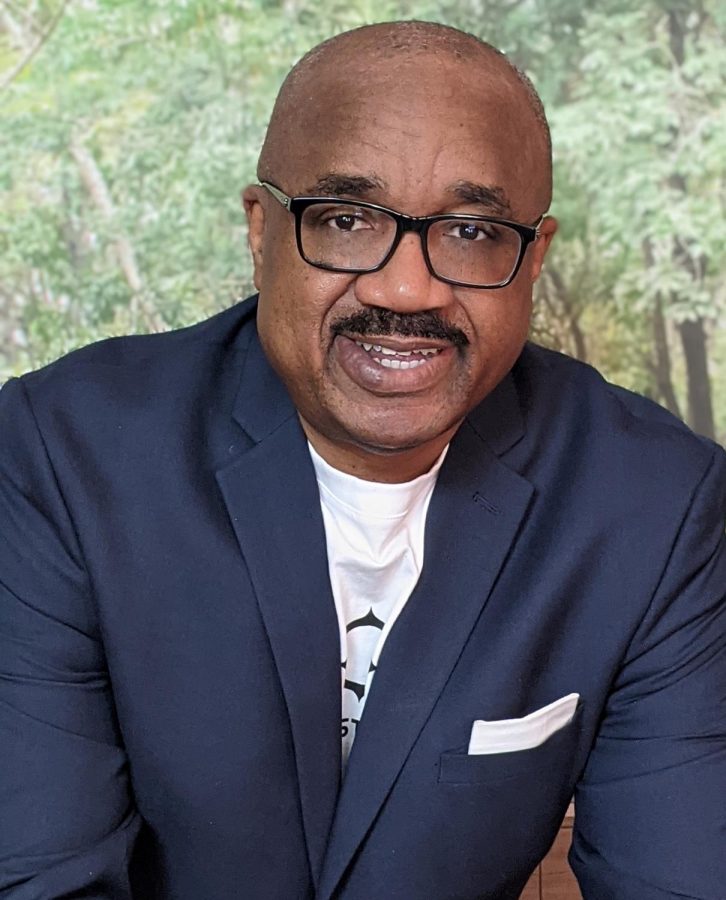
I grew up in Franklin Field Housing Development. I’m from 11 children and five women. So six women raised me.
I tell people all the time “If you’ve got any problems about me, talk to my sisters,” who are very active in the community.
My experience has been one of, even though we were poor, always being around people who were always wanting to bring about change and give to those who have been disenfranchised the opportunity to rise.
I have a strong background in youth violence prevention and gang prevention. When the call is made, I always have stepped up. You remember, we had the shootings in Florida and we had the March For Our Lives with the young folk. I took six bus loads of young people down to Washington D.C. to march and support all the other young people around the gun violence piece.
[For] the 50th anniversary of Selma, the crossing of Selma, Alabama—Bloody Sunday—we took four buses from Boston of young people and we let them know the difference between the movie Selma and the real life of Selma and the work and people who did the march for civil rights. The young people were amazing.
They were like, “This is nothing like the movie.”
So they had a chance to meet people like Dick Gregory and John Lewis. It was amazing. Working with the community and working with people to bring about change has just been part of my life. I’ve been very, very blessed and fortunate to run a number of nonprofits in Boston, in Roxbury YMCA, and in the Dorchester Neighborhood Service Center. I’ve just been doing it. It has been a thing that’s in my blood.
How does your background prepare you for this job and what made you decide to run?
I’ve been a community advocate and, as I said earlier, I ran a number of nonprofits in Roxbury, Dorchester, and Mattapan. I mentioned the Roxbury YMCA and the Odwin Learning Center (Opening Doors Wider In Nursing) for people of color. I ran the Dorchester Neighborhood Service Center. I did things around senior programming, youth jobs and weatherization. Those things have been preparing me for this.
I mentioned earlier that being a public health official, being a Deputy Commissioner for Public Health for Connecticut and managing budgets over $500 million. But it’s all that aside. I’ve been on the ground working with people in this community for a very, very long time.
It’s really a thing where I said to myself, “I have a lot of relationships and I have a lot of resources that I’ve been able to gather over the years because of my relationships. How can I give that back?”
I think it’s time for me to come in, especially when the city’s in a place of transition, to be able to advocate and advocate with consistency and with history in order to bring about real change.
One of the biggest things for me is that I want to continue to develop a bench for young people to get actively involved in the political structure, but also the relationships. Pass on the relationships and the resources to young people so that they don’t have to go backwards. They go forward. They can take the foundation that’s been established and take it to a new level, whatever that level may be. Instead of going back, they can start to look forward.
I think that’s something that a lot of activists in this city, you know, have done well. But there’s a lot of people who want to do that because they see a lot of promise in the young people that are in that community today.
What are the most important policy issues on your platform?
Well, the number one policy issue on the platform right now is really dealing with COVID. As you know, making sure that equity is being dealt with, especially in the Black and brown communities.
Prior to COVID, there were a lot of barriers and deficiencies. In the Black community, [there are] economic development, youth violence, health disparities. Now you put COVID on top of that and it’s exacerbated. So one thing that I’m focusing on is that when COVID hit, everything just blew up because of pre-existing conditions in the Black and brown community, diabetes, and high blood pressure. It was really important to deal with the policy issues that directly deal with those that have been impacted by COVID-19 [and] also those who have been impacted prior to COVID, as I mentioned earlier.
My number one issue will be dealing with COVID and getting [vaccine] shots in the arms of everyone, especially our seniors, so that they can make sure that [there is] equity across the board in distribution and make sure it’s fair in all the ways that it happens.
How do you plan to achieve these goals if elected?
As a former public health official and former Deputy Commissioner of Public Health for the state of Connecticut and also the Massachusetts Department of Public Health, I was the Division Director of Violence and Injury Prevention, which includes suicides, rape crisis centers, domestic violence, intimate partner violence, unintentional and intentional injuries, safe spaces for [LGBT] youth, and youth violence. With that being said, I have a public health background.
When COVID hit, I wanted to be proactive. So I started Masking the Community, especially communities of color sense they’ve had preexisting conditions. It has been really important that I do something, and what I thought about doing is making sure that everyone has a mask.
Early on, if you remember, masks were like gold. People were having to make decisions of either buying a mask or buying food. Masks that normally cost 22 cents were going for $1.50, which was insane in the Black and brown community. I feel masks should be free as the air we breathe so I started this initiative and to date have given out over 170,000 masks.
Along with that, as they were developing vaccines and distributing vaccines, it was very important that we masked up and continued to mask up. So some of the ways that we were able to achieve that was through Masking the Community.
Another way would be working with everyone. During this pandemic, I’ve seen people who didn’t like each other working together for the good of the community, which is a big thing in Black and brown communities because they have a lot of different types of groups who are dealing with different issues and sometimes they can’t get along.
I’ve seen people united in ways that I’ve never seen in my life. It’s really important for me to be a part of that. I wanted to reinforce and make sure that it continually happens as we go forward with eradicating this pandemic, but also to deal with the things that we’re dealing with prior to the pandemic as I mentioned earlier, in terms of equity in healthcare, equity in education, equity in housing, equity in senior programs and the like.
How did you start Masking the Community?
I was home because they closed the buildings down and I was sitting around and I said to myself “What can I do?”
I thought “What could I do and be effective?”
As I was hearing about masks and the lack of masks and we didn’t have enough masks but the hospitals and the first responders, I said “What about the people in the community?”
I was on my Facebook page, and I asked everyone on my Facebook page to give up coffee for one day, about $5. I’ve been doing community activism work all my life. I didn’t think that that ask was going to turn into $5,000, $10,000, $15,000, $20,000. People from all backgrounds, all who have worked walks of life came together and started donating to the point where it was overwhelming. I went to Lexington High, and a classmate of mine saw an article that they’ve written about Masking the Community.
Debora White said, “Leonard, listen. We’re out here in the suburbs—Lexington, Newton, Wellesley, Needham—we are a group of women out there who were making masks for first responders.
She said “How can we help?”
The next thing I know, they were making masks and we were picking them up to the tunes of 2,000 to 3,000 masks. We’ve developed a partnership with them where we were providing handmade masks with filters in them and distributing them to first responders, people who are in supermarkets, taxi drivers, community centers, local bodegas and folks that can help make the community continually run.
How is your campaign different from the other candidates running to represent the same district?
It’s different because the work that a city councilor does is what I’ve been doing all my life.
I used to be a special needs educational advocate, and a parent walked up to me and [told] me three weeks ago “They’re having issues with each other doing it on video,” and the kid has special needs.
So I said, “Well, give me a number. I’ll make a phone call and see if we can get some additional help for that.”
The whole idea is that I want to be able to be on the ground and continue to do what I’m doing, but in city hall. The big difference for me is this is something I’ve always been doing. This is not new to me.
There was an incident that really, really hit me because I was tired and the incident happened when a young man was killed in front of my house. I came home early one day and I heard the police.
I heard somebody say “Put the gun down.”
I look out my window. I live on a pretty quiet street. I look out the window, and I see two bike offices and a young man. And the young man is holding a gun. He’s literally in front of my house.
I’m screaming at him “Put the gun down, put the gun down. They’re going to kill you.”
The police officers are saying “Put the gun down, put the gun down.”
You can see that this young man was terrified. You could tell he was a good kid. He wasn’t a bad kid, but he had a gun. It was on his side. We spoke to him for about five and a half minutes. It felt like five and a half years. We finally convinced him to put the gun down. He shot the gun twice in the ground to try to scare the police, but that didn’t happen.
The police didn’t return fire. I’ve been around a lot of police, young people and gun violence, and I’ve never seen the police act with such composure and not want to kill this kid.
To make a long story short, they shot the kid. They did something that they are not trained to do. They shot the kid in the leg. He fell back and when he fell back, he pointed the gun towards the officers and they shot him one time in the abdomen.
We all ran downstairs. I ran downstairs, went up to him, and we’re all crying. The officer’s trying to give him mouth to mouth and the young kid passed away.
I asked God “Why did you put that in front of my house? What was the message?”
And the message was I have to take responsibility for that young man dying because if he had someone in his life, one person telling them something positive, the chances are he would have never been on my street.
I know in all realities that I don’t hold direct responsibility with that. But I just think of him as my nephew, my neighbor, my cousin, [or] my son, and it really said to me that we still have a lot of work to do.
That also helped propel me to talk about “We got work to do, and we got to get it done,” and that also helped me make a decision of running for a district.
What do you like about your district and what can be changed?
I love it. Born and raised, I remember the days when we used to go up to the common square. But one of the biggest things I would love to change is that we have one district. We don’t have a white district. We don’t have a Spanish district. We don’t have a senior district. We have one district. I would like to build more unity around that. I would like to have beautification.
Of course, I want to deal with the violence and inequities going on but with that, I want to have a place where people can walk and feel free to walk. I don’t want to have a common square where people are afraid to walk but they’re not afraid to walk in Ashmont. I want to be able to make sure that public safety is throughout and that the disparities that are going on within the community are dealt with in a very equitable way.
There are beautiful people in the district. All colors. There are beautiful areas in the district. All colors. I am an urban beekeeper. That gives me an opportunity to not only buzz around—that’s a little joke—but it also gives me an opportunity to meet a lot of people. I walk around the neighborhood all the time. I just think there’s a lot of hope and promise. We have a lot of green spaces that could be developed. We can beautify a common square. It’s just a beautiful place to live. I know the people and it’s nice to have a neighborhood where there’s a family that walks by my house every day at 6:30.
It’s just nice when they walk by and they go, “Hey, Mr. Lee, how you doing?”
The kids come over and they go “Oh, can I come back and look at your bees?”
That’s a neighborhood. I’m blessed to live on a street where, when there’s a snowstorm, I take out my snowblower and I clear everyone’s walkway. During the summer, my neighbor Doug comes over and washes my car. I don’t ask him to do it, but that’s a sense of neighborhood. That permeates throughout the entire community. That’s nothing exceptional for me in my street, but there are people like that all over the district.
That’s why I’ve stayed. That’s why I think it’s a beautiful place and I think it has a lot of hope and promise. We have some challenges. That’s one of the reasons why I want to be there in terms of wanting to support the people.
Is there anything else that you would like to talk about that I haven’t asked?
One of the things I always like to talk about is how it’s really important for me to work with the young people as I have been throughout my life. So making sure that they are supported, making sure that they are embraced, and making sure that they are shared with the history of the city and the powerful people that came before them.
I tell people all the time I stand on the shoulders of Martin Luther King Jr., Jean McGuire and Melnea Cass. I stand on these folks’ shoulders because they did a tremendous amount of work here. I think it’s really important that we understand that. So that’s the only way we can build.
This is a wonderful district. It’s a wonderful city. We have our challenges, yes, but we have some amazing people here. We have some amazing seniors and young people. We have some amazing folks who are working and living here on a daily basis and really care about this community.
It’s really hard when you buy a house for $170,000 and then 20 years later, it’s worth a million and you’re tempted to leave. I always encourage everyone. It’s not just about the brick and mortar of your house. It’s also about the character and the people of the community. I know we have some beautiful and wonderful people here.
As we go forward, I think it’s important that we continue with that message. It’s not about money or anything. It’s really about people.



